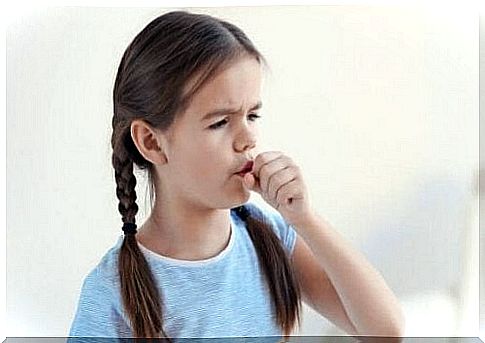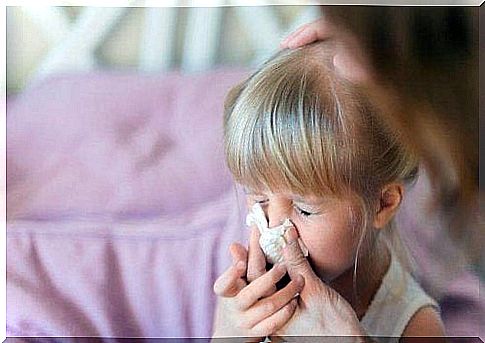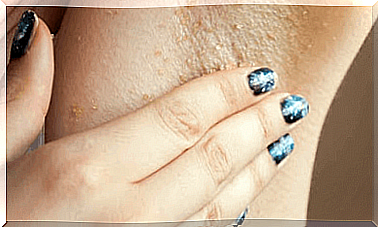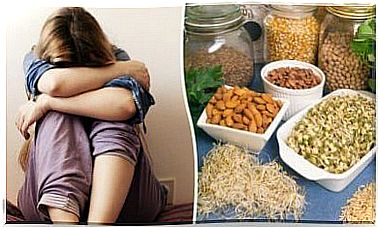How To Treat Your Child’s Nighttime Cough

Your child’s nighttime cough is probably quite normal. Your child may not cough during the day, but it plays up in the evening and prevents your child from falling asleep. In some cases, this cough even leads to vomiting. This ensures that you as a parent are on the alert.
All healthy elementary school children who have never had an infection in the airways can cough about 34 times a day. While it usually doesn’t require treatment, coughing is one of the main reasons parents take their child to the pediatrician.
Why do we cough?
The cough receptors are located in your airways, from the larynx to the lungs. These recipients are stimulated by the following factors:
- upper respiratory tract infections, including rhinitis, nasopharyngitis, laryngitis, and the common cold.
- bronchial hyperreactivity.
- asthma and allergies.
- gastroesophageal reflux.
During the day, children may only cough a few times, but during the night they cannot sleep. This is because the child stands and moves during the day, which means that his or her mucus also moves.
When they lie down, the airways become somewhat blocked because the mucus stops moving. This causes the mucus and the airways to dry up, so that the child can no longer stop coughing.
This is how you treat your child’s nighttime cough
A child’s nighttime cough can be very disturbing if it lasts for a long time, as it can also be a sign of a serious illness.
It negatively affects your child’s sleep and his or her daily activities. It also has a negative impact on the quality of life of the parents and the child. You can try to treat your child’s nighttime cough in the following ways.
1. Avoid too dry environments
It is important to keep your child’s room moist. You can place a humidifier in the bedroom, but make sure it is clean. If you use a heater, make sure the temperature doesn’t get too high. In addition, you can also place a water container on the radiator so that the air is humidified.
2. Make your child’s mucus thinner

Thinning the mucus makes it easier to expel. It is therefore important to keep your child well hydrated. For example, make sure your child drinks plenty of water. You can also give them some coconut water or fruit juice for a change.
3. Try to make them sleep half-seated
If a horizontal position makes a child’s cough worse, you can help him or her fall asleep in a semi-sitting position. Lift your child’s head up a bit or place some extra pillows under the head and back.
4. Improve breathing through the nose
If there is thick mucus, you can use saline solutions. You can often find these in nasal spray. Although this can be a bit uncomfortable for your child, it is very effective.
You can also massage your child’s chest with some essential oils. Try the following combination:
Ingredients
- 2 drops of eucalyptus essential oil
- 10 drops frankincense essential oil
- 100 ml sweet almond oil
Usage
- Mix all the oils in a bowl.
- Pour a good amount of oil on your hand and massage your child’s chest to prevent constipation.
5. Fight a dry throat
You probably know that honey prevents dry cough. You can give your child a teaspoon of honey before going to sleep or when he starts coughing. You can also dilute it in some warm milk if you want.
Another remedy for your child’s nighttime cough is cutting white or red onion and then pouring some honey over it. The honey will then become thinner in a few minutes. You can give this ‘syrup’ to your child every day.
6. Use onion as a remedy

You can use onion as a remedy by cutting one and placing it next to your child’s bed. This is a very effective way to combat nighttime coughing. Onion contains a lot of polyphenols. These are natural antihistamines that counteract allergy symptoms and can reduce inflammation in the airways.
If you sprinkle some sugar over the onion, the aroma will spread throughout the room. This can make your child stop coughing.
7. Avoid self-medication
In general, medication for nighttime cough is not necessary. If in doubt, seek the advice of a pediatrician.
Medicines that you can buy at the pharmacy without a prescription are absolutely not suitable for children under 2 years of age. For a young child, the following substances can have harmful side effects:
- codeine
- dextromethorphan
- cloperastine
Conclusion
It is very common for children to develop an inflammation of the airways when they are just starting out at preschool or daycare. Doctors indicate that this is only chronic if it persists for more than four weeks.
If your child is also having trouble breathing, it is important to make an appointment with the pediatrician as soon as possible. It is also important to remove irritating factors such as cigarette smoke and cleaning chemicals from your environment.









